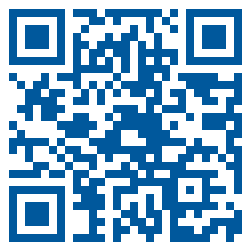
 Integrated Therapy Assistant (focus on Speech and Language Therapy) in Maidenhead inMaidenhead
Integrated Therapy Assistant (focus on Speech and Language Therapy) in Maidenhead inMaidenhead PUBLISHED THU 28 NOV 2024 Jump to job information section
Job description
Interview will be held on 10th Dec 2024
If you have experience in working with children age 0-5years, this is an ideal opportunity for you to develop your skills further. We are looking for someone who is enthusiastic, creative and flexible who is qualified to NVQ level 3 (or equivalent) to work within our Children and Young People's Integrated Therapies (CYPIT) team. The successful candidate would work predominantly with the Speech and Language Therapy team working alongside therapists delivering therapy sessions in clinics and educational settings, but also support Occupational Therapy and Physiotherapy goals as part of an integrated therapies approach.
This post is for 22.5 hours per week, permanent role, based out of St Mark's Hospital, Maidenhead.
key member of the CYPIT team providing essential support to Speech and Language Therapists, enabling the service to deliver a high-quality therapy service to children.
An Integrated Therapy Assistant carries out a range of work tasks and interventions independently under the direction of a CYPIT Therapist (with and/or without direct supervision).
This role contributes to and delivers support and training to educational settings, parents and carers as part of service delivery, is responsible for a specific defined caseload and supports assessment of children under the supervision of a qualified clinician, as well as provision of direct therapy.
This position involves planning, organising and documenting of key activities, as well as supporting any project work or service development.
About us
The must haves for this role:
Excellent communication skills
An ability to interact effectively with children and their families
Able to work as part of a team
Car driver and ability to use car to drive to various educational settings
For further information about the role, please see attached job description and person specification.
We strongly encourage you to review how you meet the criteria in the person specification and write about this point-by-point in your supporting statement for the best chance of being shortlisted.
Were committed to equal opportunities and welcome applications from all sections of the community. Our commitment to inclusion is reflected in our accreditations: Race Equality Matters Silver Trailblazer, Neurodiversity in Business Corporate Member, Disability Confident Leader, Carer Confident Level 2, and the Armed Forces Covenant Gold Award. Reasonable adjustments will be provided to candidates as needed.
We welcome a conversation about flexibility and any other questions you may have. Please dont hesitate to call: Gemma West on or email: wholl be delighted to help.
Please note, if we receive a high number of applications, we may close this role earlier than the advertised closing date, so please submit your application as soon as possible.
If you're interested in this role but you have questions or you're not yet ready to apply, then please book a quick call with us and we'd be happy to answer any questions you have and tell you more about the role.
Requirements
See the job description for full role requirements.
Benefits
Benefits are provided by the employer and will be confirmed during your application.
A quick tap lets us tune future job matches for you


Scan with your phone to return to this page later.